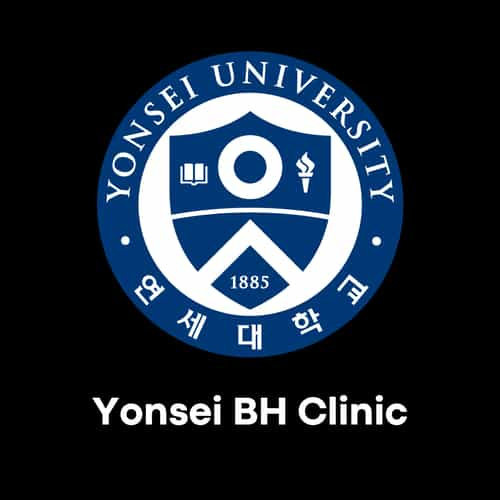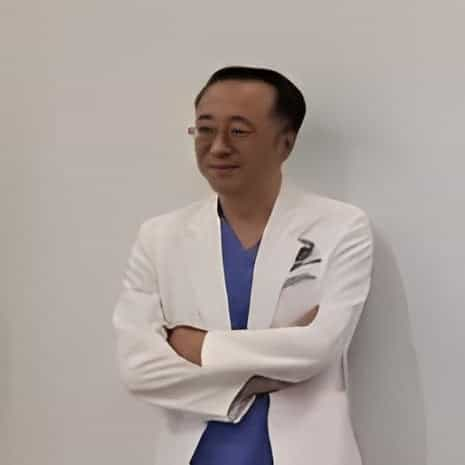What treatment
10 High Rated Stem Cell Therapy Clinics in Gangnam Gu, South Korea
Discover Recommended Stem Cell Therapy Clinics in Gangnam Gu Based on Patient Feedback.
Yonsei BH Clinic
Overview
Yonsei BH Clinic offers advanced stem cell therapy in Seoul, South Korea, for erectile dysfunction, anti-aging, Parkinson disease, dementia, diabetes, and more.
Read more detailsWhich are the best clinics for Stem Cell Therapy in South Korea?
The "best" stem cell therapy clinic in South Korea boasts official Ministry of Health accreditation, expertise in your specific condition, and transparent practices. Look for facilities with proven experience and clear protocols. Yonsei BH Clinic in Seoul is an example of a center providing advanced regenerative treatments.
To identify top-tier clinics in South Korea:
- Accreditation: Verify official licensing by the Ministry of Health and Welfare (MOHW), ensuring adherence to national safety and quality standards for advanced regenerative medicine.
- Specialization: Look for clinics with extensive experience in your specific health issue (e.g., orthopedic, neurological, or anti-aging) and inquire about their track record and outcomes.
- Transparency: The clinic should openly detail its stem cell sources (autologous or allogeneic mesenchymal stem cells), processing methods, and treatment administration protocols.
What criteria define a reputable stem cell clinic in South Korea?
A reputable South Korean stem cell clinic strictly adheres to national regulations, offers transparent treatment protocols, and features a highly qualified medical team. Key criteria include official accreditation (MOHW/MFDS), ethical cell sourcing, comprehensive patient screening, and clear communication about expected outcomes and risks, all ensuring superior patient safety and care.
To identify a reputable clinic in South Korea, prioritize:
- Regulatory Compliance: Verify valid licenses from the Korean Ministry of Health and Welfare (MOHW) and Ministry of Food and Drug Safety (MFDS).
- Medical Expertise: Physicians and staff need specialized training and extensive experience in regenerative medicine.
- Advanced Labs: Seek clinics with in-house, GMP-certified laboratories for sterile and high-quality stem cell processing.
- Clear Communication: Reputable clinics provide comprehensive details on treatments, benefits, risks, and realistic outcomes for informed decisions.
How do South Korean stem cell clinics ensure patient safety?
South Korean stem cell clinics prioritize patient safety through rigorous pre-treatment health evaluations, use of patient's own (autologous) or carefully screened donor cells, and strict adherence to government-mandated protocols for cell processing in sterile, GMP-certified labs. This is bolstered by robust infection control measures and structured post-treatment monitoring for comprehensive patient protection.
Patient safety is paramount and achieved through:
- Comprehensive Screening: Detailed medical assessments ensure patient suitability and minimize risks.
- Sterile Processing: GMP-certified labs provide contamination-free cell handling, ensuring purity.
- Infection Control: Strict adherence to international sterilization standards for all facilities.
- Expert Administration: Therapies delivered by highly qualified professionals using precise techniques.
- Post-Treatment Oversight: Patients receive clear aftercare and ongoing monitoring for adverse reactions or progress.
What types of stem cells are commonly used in clinics in South Korea?
South Korean clinics primarily use adult mesenchymal stem cells (MSCs) due to their regenerative capabilities and strong safety profile. These are typically harvested from the patient's own adipose (fat) tissue or bone marrow (autologous cells). Some facilities also employ allogeneic umbilical cord blood or tissue-derived MSCs, valued for their higher potency and minimal immune rejection risk, expanding therapeutic options.
Korean clinics commonly use:
- Adipose-Derived Stem Cells (ADSCs): MSCs from patient fat tissue, abundant and regenerative, used for orthopedic, anti-aging, and autoimmune conditions.
- Bone Marrow-Derived Mesenchymal Stem Cells (BM-MSCs): Extracted from bone marrow, effective for musculoskeletal issues.
- Umbilical Cord-Derived Mesenchymal Stem Cells (UC-MSCs): Allogeneic cells from donated cords. Potent, low rejection risk, versatile for various treatments.
Are English-speaking staff available at stem cell clinics in South Korea?
Yes, many leading stem cell clinics in South Korea are well-equipped for international patients, providing English-speaking staff. This includes dedicated international patient coordinators for logistics, doctors fluent in English for direct medical discussions, and comprehensive translated medical documents. This ensures clear communication from inquiry through treatment and follow-up, offering a stress-free experience for global patients.
Top Korean clinics prioritize seamless communication for international patients:
- International Patient Services: Multilingual teams assist with inquiries, appointments, and travel logistics.
- Bilingual Medical Staff: Many doctors are fluent in English, often with international training, enabling direct discussion of complex medical details.
- Translated Documents: Key medical information, including consent forms and aftercare, is provided in English.
- Telehealth Options: Initial consultations can be conducted remotely with English-speaking support.
What is the typical patient journey at a South Korean stem cell clinic?
The patient journey for stem cell therapy in South Korea usually starts with an online medical inquiry and remote record review, followed by a telehealth consultation. Upon arrival, a comprehensive in-person evaluation precedes the customized stem cell treatment. Post-procedure, patients receive detailed aftercare plans and benefit from structured remote follow-up to monitor their recovery and ensure optimal long-term results.
The patient journey is structured for clarity and support:
- Online Inquiry: Submit medical records and health goals.
- Remote Consultation: Discuss eligibility and preliminary plan via video call with a coordinator/doctor.
- Arrival & In-Person Assessment: Comprehensive physical exam and final treatment plan confirmation.
- Treatment Procedure: Cell harvesting (if autologous), processing, and precise administration.
- Post-Treatment Care: Immediate monitoring, detailed recovery instructions, and initial medications.
- Remote Follow-up: Scheduled telehealth calls with your medical team to track progress.
How can I verify the legitimacy of a stem cell clinic in South Korea?
To verify a South Korean stem cell clinic's legitimacy, confirm official accreditation with the Ministry of Health and Welfare (MOHW) and Ministry of Food and Drug Safety (MFDS). Also, seek international certifications like JCI, review transparently displayed licenses and doctor qualifications on their website, and cross-reference with independent patient reviews. Direct inquiry for documentation is a vital step for comprehensive assurance.
Verifying a clinic's legitimacy is crucial for your safety:
- Governmental Accreditation: Confirm licenses from MOHW and MFDS.
- International Certifications: Look for global accreditations like JCI.
- Website Transparency: Credible sites detail licenses, staff qualifications, cell types/sourcing, and GMP lab facilities.
- Direct Inquiry: Request copies of official licenses and doctor credentials.
- Patient Reviews: Consider consistent positive feedback on independent platforms.
What are the ethical considerations for stem cell therapy in South Korea?
Ethical considerations for stem cell therapy in South Korea primarily focus on using adult-derived stem cells, ensuring rigorous informed consent, and maintaining transparency in clinical practices. Regulations, particularly the Bioethics and Safety Act, emphasize patient autonomy, thorough information disclosure, and strict oversight to prevent unproven or unethical therapies, fostering responsible advancements in regenerative medicine.
South Korea's ethical guidelines are shaped by its Bioethics and Safety Act:
- Cell Source: Preference for adult stem cells (autologous or umbilical cord-derived) over embryonic.
- Informed Consent: Patients receive comprehensive information: therapy details, benefits, risks, alternatives, and experimental status.
- No Exaggerated Claims: Clinics are prohibited from making unverified claims or guarantees.
- Patient Privacy: Strict confidentiality for all medical and genetic information.
- Research Oversight: Clinical trials require mandatory ethical review by an Institutional Review Board (IRB).
Do Korean stem cell clinics offer therapies for specific conditions like orthopedic issues or anti-aging?
Yes, South Korean stem cell clinics are highly specialized, offering targeted therapies for a broad range of conditions, including significant expertise in orthopedic issues like knee osteoarthritis and various joint injuries, alongside advanced anti-aging and aesthetic rejuvenation treatments. They leverage diverse stem cell types, including adipose-derived and umbilical cord MSCs, tailoring protocols for optimal regenerative healing and cosmetic outcomes.
Korean clinics lead in applying stem cell technology to various health and aesthetic concerns:
- Orthopedic Regenerative Medicine: Treatments for knee osteoarthritis, hip issues, joint pain (regenerating cartilage, reducing inflammation), and ligament/tendon injuries.
- Anti-Aging and Aesthetic Rejuvenation: Enhancing skin elasticity, reducing wrinkles, stimulating hair growth, and systemic wellness programs for vitality.
- Other Areas: Therapies for neurological conditions (e.g., Parkinson's, stroke) and certain chronic diseases (e.g., diabetes, liver cirrhosis).
What kind of post-treatment support can I expect from South Korean clinics?
Leading South Korean stem cell clinics provide extensive post-treatment support: immediate recovery guidance, necessary medications, and personalized rehabilitation plans. This comprehensive care extends to structured remote follow-up via telehealth, ongoing communication with the medical team, and seamless coordination with your local physician. This ensures continuous support for optimal healing and long-term therapeutic success for international patients returning home.
Comprehensive post-treatment care is vital for optimal results:
- Immediate Aftercare: Instructions on wound care, medication, diet, and activity restrictions.
- Medication & Supplements: Provided post-procedure medications and recommended healing supplements.
- Rehabilitation Plans: Personalized plans, often with telehealth guidance, for recovery.
- Remote Follow-up: Scheduled video consultations (e.g., 1, 3, 6, 12 months) with your physician.
- Patient Communication: Access to a dedicated international patient coordinator for questions.
- Local Doctor Coordination: Detailed medical reports for your local physician.
How PlacidWay helps individuals access Stem Cell Therapy in South Korea?
PlacidWay provides detailed, up-to-date information about Stem Cell Therapy in South Korea, including its benefits, potential risks, and expected outcomes. We empower you with the knowledge needed to understand the treatment fully before making a decision, ensuring you're well-informed for your regenerative health journey.
We help you compare various Stem Cell Therapy packages from leading clinics in South Korea, focusing on transparent pricing and comprehensive inclusions. Our platform ensures you find affordable options without compromising on quality, tailored to your budget and medical needs.
PlacidWay assists you in finding trusted, accredited clinics and highly qualified medical professionals specializing in Stem Cell Therapy in South Korea. We meticulously vet our partner facilities to ensure they meet stringent international standards for safety and patient care, giving you peace of mind.
We offer one-on-one consultations to help you make truly informed decisions about your treatment plan. Our dedicated care team listens attentively to your specific health concerns and helps connect you with the clinic that best matches your unique medical needs and personal goals.
Our commitment to your well-being extends beyond the procedure. PlacidWay ensures you receive continued support during your recovery, including assistance with arranging follow-up care and providing answers to any post-treatment questions you may have, ensuring a smooth healing process.
Ready to explore Stem Cell Therapy in South Korea? Contact us today for a personalized consultation.















